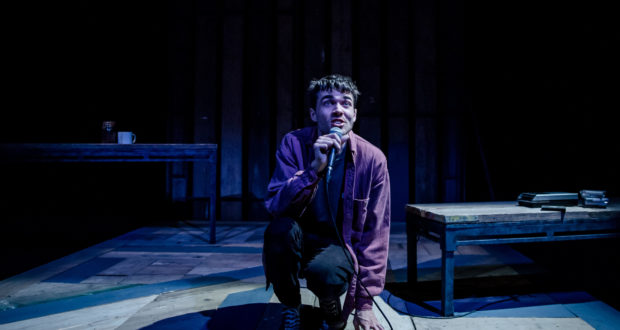Pros: The sound and lighting are excellent.
Cons: The sequence of events is hard to follow. This interesting look at three generations of hopeful migrants is not substantiated by a consistent plot.
Summary
Rating
Good
In 1989, when the Berlin wall was taken down, David Hasselhoff’s “Looking for Freedom” became the anthem for many hopeful citizens who dreamt of a borderless Europe. People from East Berlin, and many other countries, celebrated this historical moment as the beginning of a new life of opportunities for them and their children. International leaders recognised the benefits of free trade, open borders and, arguably, the use of a single currency and the European Union was soon taking its first steps.
For the Brits, and the many European citizens who set roots in the UK, this dream of cohesion and prosperity was broken abruptly on the early hours of 24th June 2016, when the country’s intention to leave the EU was established by referendum.
In today’s current climate, nobody knows what the future will bring, but playwright Danielle Pearson speculates on how Europe will look in 2052. Italy will no longer cope with the pressure of the migratory waves coming from the South (not much will have changed, in that respect), and an upcoming referendum will consult all European citizens about the so-called ‘one-child policy’.
This dystopic portrayal is in danger of sending out the wrong message. Is Pearson trying to say that, by letting all the migrants in Europe will risk overpopulation? I very much hope not. Besides, why would a Europe-wide referendum stem from an actual state of affairs where, in many countries, rising forces are striving to dissolve the European Union? How this organisation will have survived until 2052 remains unclear.
With each return of Hasselhoff’s hit, these three scenarios intertwine and endeavour to create a cause and effect connection through one-man storytelling. In 1989 the young narrator is in Berlin, following a young woman’s first reactions to the fall of the Wall. In 2052 he’s in Italy, where he describes another woman’s dilemmas, being the daughter of migrant parents. In 2017 he’s in England, venting his financial and personal struggles, due to a disappointing acting career.
These were my favourite sequences, and the ones I found easiest to relate to. However, as my partner aptly pointed out, the risk of talking about everyday life within a bland plot is that the mind of the spectator could drift off to similar events drawn from personal experience. As a result, on a few occasions my attention diverted from the performance to my own thoughts on freedom and my family history of migration.
Fortunately, the periodically changing shades of light and Ella Wahlström’s immersing soundscape helped to awaken my senses and brought my focus back to the episodes recounted by Jesse Fox on Ben Pacey’s raw and evocative set.
My lasting impression of This Restless State is that of a production where the technical value overshadows the quality of the plot, which should rest on stronger foundations and apply more mortar to keep its bricks together.
Author: Danielle Pearson
Director: Jemima James
Producer: Fuel Theatre and Ovalhouse
Booking Until: 24 March 2018
Box Office: 020 7582 7680
Booking Link: http://www.ovalhouse.com/whatson/detail/this-restless-state
 Everything Theatre Reviews, interviews and news for theatre lovers, London and beyond
Everything Theatre Reviews, interviews and news for theatre lovers, London and beyond



